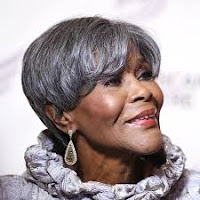I recently read an article about the effects of having a grateful attitude. It was an article about scientifically proven benefits of gratitude. Apparently it improves not only our emotional health but also our physical health. A few things mentioned were it makes us happier, improves our moods, increases our resilience, improves our self-esteem. It also can improve sleep, helps reduce pain, strengthens our immune system, and lowers stress. These are only a few of the things the article mentioned as positive effects of a grateful attitude. At times it tends to be a little difficult to see the sunny side up. Especially when many things get thrown at you during the day and you get bogged down with all the to-do’s and the don’t do’s and the don’t have time to do’s. So how can we have an attitude of gratitude? I think you have to make it a habit. Like we have to make working out a habit, or eating healthy a habit. And for anything to become a habit we must do them for an extended period of time. We must practice it every day. It might be as simple as being grateful for a cup of coffee or tea in your hand, or the wonderful feeling of fur between your fingers as you scratch your little Fido’s face. I believe the things or people or moments that bring the biggest joy are the little ones that sometimes might go unnoticed. I challenge you to join me in a month of jotting down a few things you are grateful for each day. I have a journal specifically for this task, because I tend to jump at any opportunity to buy a new journal, and I may or may not have bought some new pens for this month of gratitude. Whether it is in a journal, or in your planner, or a notecard. And whether you jot down your gratitudes at the end of a long day, the beginning of a new day, or somewhere in between, let’s do it. And then let me know how you feel at the end of the month.
Here is a list to start my attitude of gratitude:
- Skinny Vanilla lattes
- The first sip of coffee in the morning
- Writer’s group and kindred spirits
- The freshness of a new day with new possibilities
- My 95 year old grandmother’s young spirit
- My mother continuing to mother me even after I am a mother of my own.
- My daughter’s kind heart
- My son’s sincere and reflective mind
- Reminders on my phone because I have a million and one things on my mind at all times
- My silky pillow after a long day
- Music, any, all kinds
- Giggles during pedicures (not mine but my daughter’s)
- The determination on my son’s face before the snap of the football
- Friends who are family
- Pink dresses and strappy heels
- Walking into church on Sunday morning
- Walking out of church filled with peace on Sunday morning
- Curling up with my fuzzy blanket to watch a movie or read a good book
- The smell of the library
- My grandma’s house, and the stories it holds
- That I am exhausted at the end of the day because it means I tried my best. I gave all I had.
- That I carry hope within me so that even on the darkest of days, I still feel the sun’s rays even when I can’t see them.




















